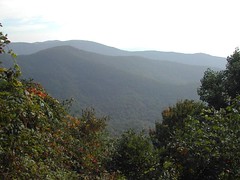Lost opportunities
Fascinating article in Business Week about how Knight Ridder blew the possibilities for using the Internet to advance their news and advertising products, back in the mid-90s: A Cautionary Tale for Old Media.
What he proposed became the online product, Mercury Center, first on AOL then on the 'Net. But although Ingle encouraged other K-R publishers to get involved, nothing ever came of it. The tale tells of Ingle's proposed New Century Network, too, an alliance of several newspaper publishing companies, that lasted only a couple years.
Too bad. Looking back at what would have been won't change what happened. Knight Ridder was often on the cutting edge of newspaper innovations, including their forward-looking Viewtron, launched in 1983. Unfortunately this came along too soon too. Even stranger, in1949 1947 the Knights' Miami Herald launched a Facsimile Edition that printed out copies of stories from a radio receiver. (Although no one remembers this, there is a clipping file in the Herald's library that tells the story.)
Lots of great ideas and great people, yet the company is no more.
(Added later: the Miami Herald's Facsimile Edition (and there was also one in Philadelphia) has been mentioned outside the Herald's clip files, in this study (Google cache of HTML version of the PDF) from Northwestern University, and in this 1948 Time Magazine story, as well as some books and in the New York Times at the time.)
On Jan. 19, 1990, Robert D. Ingle, then executive editor of the San Jose Mercury News, wrote a remarkably prescient memo to his bosses at the newspaper chain Knight Ridder. Typing at night in his breakfast nook on an Apple II PC, he envisioned that a global information network would emerge, giving rise to all manner of online communities. And he proposed an online service, Mercury Center, aimed, his memo said, at "extending the life and preserving the franchise of the newspaper."
What he proposed became the online product, Mercury Center, first on AOL then on the 'Net. But although Ingle encouraged other K-R publishers to get involved, nothing ever came of it. The tale tells of Ingle's proposed New Century Network, too, an alliance of several newspaper publishing companies, that lasted only a couple years.
Knight Ridder executives had their eyes locked on Wall Street, where analysts hounded them for faster growth. They missed what was happening in a garage in Menlo Park, a few miles from the Mercury News building, where a couple of Stanford students had just started search engine Google.
Looking back, Ingle concludes that what sank Knight Ridder was, surprisingly, that the Internet didn't change things fast enough. "We got an early start, but we couldn't take advantage of it," he says.
Too bad. Looking back at what would have been won't change what happened. Knight Ridder was often on the cutting edge of newspaper innovations, including their forward-looking Viewtron, launched in 1983. Unfortunately this came along too soon too. Even stranger, in
Lots of great ideas and great people, yet the company is no more.
(Added later: the Miami Herald's Facsimile Edition (and there was also one in Philadelphia) has been mentioned outside the Herald's clip files, in this study (Google cache of HTML version of the PDF) from Northwestern University, and in this 1948 Time Magazine story, as well as some books and in the New York Times at the time.)
Labels: journalism, new media





0 Comments:
Post a Comment
<< Home